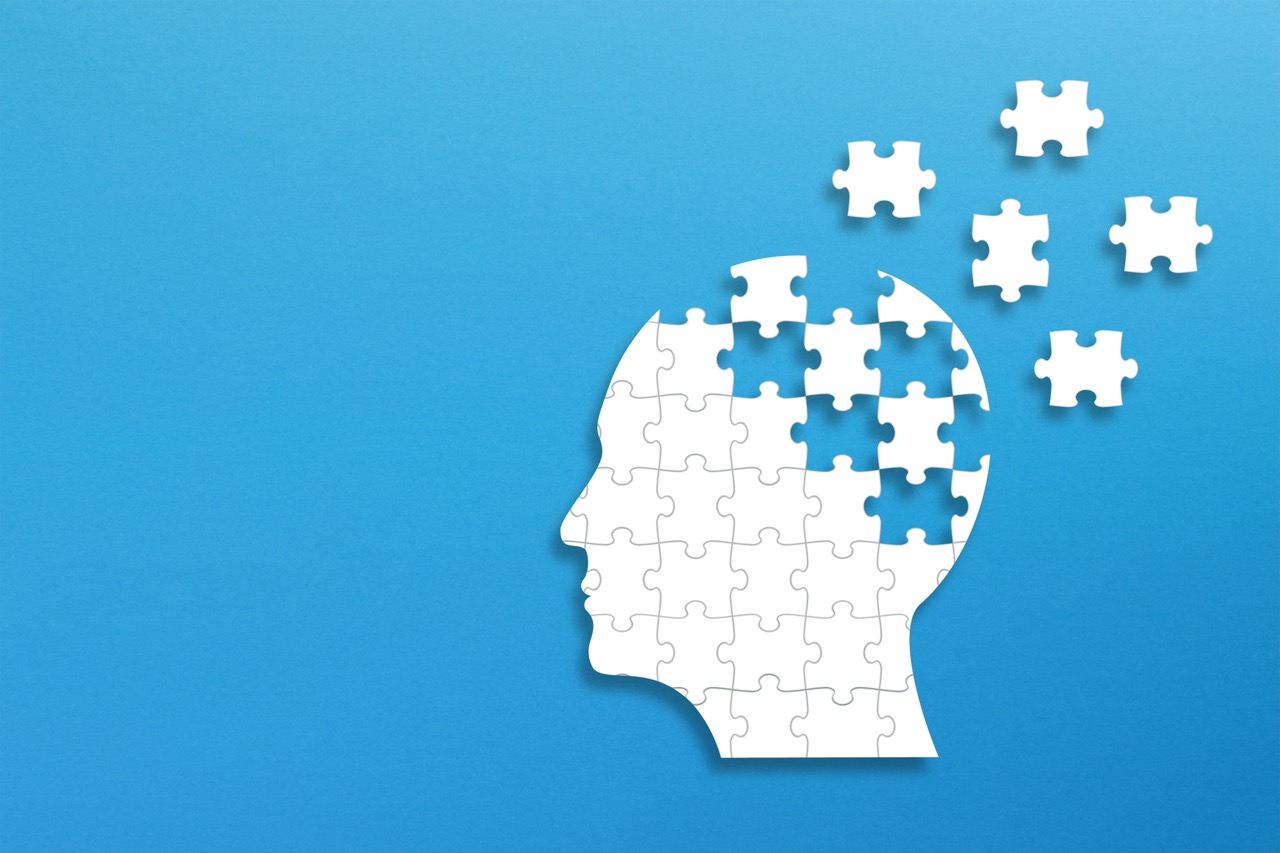Bipolar Disorder and Depressive Episodes
Bipolar disorder is a serious mental health condition that involves far more than ordinary mood changes. Although it’s often linked to mania, its depressive episodes can be equally disruptive. These episodes are widely misunderstood and carry significant risks, including impaired functioning and suicidal thinking.
Understanding how bipolar depression appears, and how it differs from typical depression, is essential for early recognition and effective care.

What are Bipolar Depressive Episodes?
Bipolar disorder is a psychiatric condition characterized by alternating periods of elevated and depressed mood. A depressive episode in bipolar disorder involves a cluster of symptoms that persist for at least two weeks and interfere with daily functioning.
Some of the most common symptoms include:
- Emotional Disengagement: This can involve loss of interest or pleasure in nearly all activities.
- Low Mood: This can occur for most of the day, nearly every day.
- Appetite or Weight Changes: It’s important to note that these changes would not be due to dieting.
- Sleep Disturbances: This includes insomnia or oversleeping.
- Fatigue: This symptom encompasses having a generally low level of energy.
- Negative Feelings: People in a bipolar depressive episode may experience feelings of worthlessness or excessive guilt.
- Cognitive Challenges: These include difficulty concentrating or making decisions.
- Suicidal Thoughts: Thoughts of dying or ending one’s life can also occur in bipolar depressive episodes.
Bipolar Depression vs. Everyday Sadness
To qualify as part of a bipolar depressive episode, these symptoms must interfere with a person’s ability to function in their daily life. Bipolar depressive episodes are more than just everyday lows. The symptoms are more persistent and disruptive, and they affect thinking, physical energy, and emotional regulation.
While it’s normal to experience sadness after traumatic or upsetting events, bipolar depressive episodes are not caused by a specific life event. What’s more, unlike everyday sadness, they don’t resolve on their own.
How Bipolar Depression Differs from Unipolar Depression
Bipolar depression and major depressive disorder (MDD), sometimes referred to as unipolar depression, can look nearly identical on the surface. However, there are key differences that affect diagnosis, treatment, and long-term outcomes. Learning about the recognized types of bipolar disorder can also help people better understand their diagnosis and what to expect from treatment.
Symptom Differences
While both bipolar and unipolar depression share low mood, fatigue, and changes in sleep, bipolar depression is more likely to include:
- Atypical Features: Increased sleep and appetite are atypical symptoms present in bipolar depression.
- Mood Reactivity: In bipolar depression, it’s more likely that mood briefly improves in response to positive events.
- Psychomotor Changes: Bipolar depression can cause slowed movements and thoughts.
- Irritability: Excessive irritability is a symptom of bipolar depression which is especially prevalent in young people.
These features sometimes cause bipolar depression to be misdiagnosed as unipolar depression, or even as an anxiety or personality disorder.
Course of Illness
Bipolar depression often has an earlier age of onset, sometimes appearing in adolescence. It is more likely to involve recurrent episodes as well as periods of complete recovery. The presence of past manic or hypomanic bipolar episodes distinguishes it from unipolar depression or MDD.
Diagnostic Challenges
Oftentimes, bipolar depression is treated as unipolar depression simply because a manic episode hasn’t yet emerged or been recognized in a person. This delay in proper diagnosis can worsen symptoms and increase the risk of complications, including suicide [1].
That’s why it’s essential for clinicians and patients to look beyond the surface and consider one’s full mood history, while being aware of the nuances in how symptoms show up.
Lived Experience and Functional Impact of Bipolar Depression
Living with the depressive episodes that characterize bipolar depression often means struggling to function in ways others take for granted. Even when symptoms aren’t outwardly visible, they can deeply affect a person’s ability to manage their personal relationships, maintain a job, or care for themselves.
Impact and Duration of Depressive Episodes
Everyday effects of bipolar depressive episodes can include fatigue, difficulty concentrating, loss of interest in social connections, and emotional numbness. These challenges can continue between episodes, even when one’s mood is stable. Over time, the combination of functional impairment and stigma can lead to isolation and a loss of confidence or sense of identity.
When someone with bipolar disorder has a depressive episode, it typically lasts for weeks to months. These periods may occur repeatedly over a person’s lifetime. Research shows that depressive episodes account for much of the long-term disability seen in bipolar disorder. They tend to have a greater impact on daily functioning than manic episodes, particularly when left untreated. They are also harder to recover from without targeted support [2].
Understanding Mixed Episodes in Bipolar Disorder
Mixed episodes happen when symptoms of mania and depression overlap or shift rapidly. These episodes are less common than manic or depressive phases alone, but they tend to be more severe and harder to manage. Exploring the different kinds of bipolar disorder can offer helpful insight into how these episodes fit within the broader condition.
Defining Features
To be diagnosed with a mixed episode, a person may show symptoms of both mania and depression, either at the same time or in close sequence. They may experience significant distress or loss of functioning and cycle quickly between opposing moods, sometimes within hours.
A person might feel restless but emotionally drained during a mixed episode. As an example, they may be driven to act impulsively while feeling overwhelmed by guilt.
Why Mixed Episodes Matter
Mixed episodes carry a higher risk of psychosis, hospitalization, and suicide. They’re also more likely to be misdiagnosed, especially in younger people or those without a known history of bipolar disorder. Recognizing these episodes early can be difficult, but it is critical to safety and treatment planning, which starts with awareness of the symptoms [3].
Recognizing Suicide Risk During Depressive and Mixed States
Suicidal thoughts can surface during any phase of bipolar disorder, but they often intensify during depressive and mixed episodes. In mixed states, one experiences both manic and depressive symptoms at the same time. This creates a dangerous window where the impulsiveness from mania can collide with feelings of despair from a depressive episode.
Warning Signs of Suicide in a Depressive Episode
If someone with bipolar disorder is contemplating suicide during a depressive or mixed episode, there are some warning signs. Someone in this state may speak openly about feeling hopeless. Others show more subtle signs, like pulling away from daily life or taking sudden and uncharacteristic risks.
Other signals may include talking about being a burden or not wanting to exist. The person may withdraw from close relationships. They may also seem unusually calm after a period of visible distress. Another warning sign is taking steps to “get affairs in order” or giving away meaningful belongings.
In a recent study, researchers identified two experiences that often occur just before a suicide attempt in people with bipolar disorder: overwhelming emotional pain and a feeling of being trapped with no way out. These states may not be obvious, but when they appear, they signal immediate risk and must be taken seriously [4].
Getting the Right Diagnosis for Bipolar Depression
Bipolar depression is often mistaken for major depressive disorder (MDD) or unipolar depression, especially when manic or hypomanic episodes haven’t yet been recognized. Without a full understanding of the mood cycle, treatment may fall short, and that can delay recovery [5].
Getting the right bipolar diagnosis involves:
- Reviewing Past Episodes: Keeping note of mood changes includes nuances in energy shifts and irritability, as they play a role in tracking episodes.
- Family History: It’s important to look at whether one has a family history of mood disorders, including bipolar disorder.
- Symptoms Over Time: For accurate diagnosis, symptoms should be monitored over a period of time, not just in isolated moments.
Next Steps Toward Treatment
If bipolar disorder is suspected, a referral to a psychiatrist or mood specialist is recommended. Treatment typically includes medication, therapy, and ongoing support. Education about all the main aspects of bipolar depression by a mental health professional can help individuals and families recognize triggers and stay engaged in care [6].
Moving Forward with Support
Bipolar depressive and mixed episodes can be emotionally exhausting and physically draining. These symptoms interfere with work, relationships, and a person’s self-worth. Moreover, they can increase the risk of suicide when left unrecognized.
However, recovery is possible with the right support, especially when one is guided by accurate diagnosis and evidence-based treatment. With the right tools and care, it becomes possible to manage symptoms, rebuild stability, and move forward with greater clarity and hope.
That said, it’s important to know when to take action regarding the risk of suicide. If you’re concerned that someone is considering suicide, ask them how they’re feeling. You don’t need to fix everything. Being present and taking a first step can make all the difference.
- Forty, L., Smith, D., Jones, L., Jones, I., Caesar, S., Cooper, C., Fraser, C., Gordon-Smith, K., Hyde, S., Farmer, A., McGuffin, P., & Craddock, N. (2008). Clinical differences between bipolar and unipolar depression. British Journal of Psychiatry, 192(5), 388–389. https://doi.org/10.1192/bjp.bp.107.045294. Accessed May 4, 2025.
- Gitlin, M. J., & Miklowitz, D. J. (2017). The difficult lives of individuals with bipolar disorder: A review of functional outcomes and their implications for treatment. Journal of Affective Disorders, 209, 147–154. https://doi.org/10.1016/j.jad.2016.11.021. Accessed May 4, 2025.
- Oliva, V., Fico, G., De Prisco, M., Gonda, X., Rosa, A. R., & Vieta, E. (2025). Bipolar disorders: An update on critical aspects. The Lancet Regional Health–Europe, 48, 101135. https://doi.org/10.1016/j.lanepe.2024.101135. Accessed May 4, 2025.
- Bagge, C. L., Littlefield, A. K., Wiegand, T. J., et al. (2023). A controlled examination of acute warning signs for suicide attempts among hospitalized patients. Psychological Medicine, 53(7), 2768–2776. https://doi.org/10.1017/S003329172100471. Accessed May 3, 2025.
- Hirschfeld, R. M. (2014). Differential diagnosis of bipolar disorder and major depressive disorder. Journal of affective disorders, 169, S12-S16. https://doi.org/10.1016/S0165-0327(14)70004-7. Accessed May 4, 2025.
- Mitchell, P. B., Frankland, A., Hadzi-Pavlovic, D., Roberts, G., Corry, J., Wright, A., Loo, C. K., & Breakspear, M. (2011). Comparison of depressive episodes in bipolar disorder and in major depressive disorder within bipolar disorder pedigrees. British Journal of Psychiatry, 199(4), 303–309. https://doi.org/10.1192/bjp.bp.110.088823. Accessed May 4, 2025.
The Clinical Affairs Team at MentalHealth.com is a dedicated group of medical professionals with diverse and extensive clinical experience. They actively contribute to the development of content, products, and services, and meticulously review all medical material before publication to ensure accuracy and alignment with current research and conversations in mental health. For more information, please visit the Editorial Policy.
We are a health technology company that guides people toward self-understanding and connection. The platform provides reliable resources, accessible services, and nurturing communities. Its purpose is to educate, support, and empower people in their pursuit of well-being.
Areesha Hosmer is a writer with an academic background in psychology and a focus on Cognitive-Behavioral Therapy (CBT).
Holly Schiff, Psy.D., is a licensed clinical psychologist specializing in the treatment of children, young adults, and their families.
The Clinical Affairs Team at MentalHealth.com is a dedicated group of medical professionals with diverse and extensive clinical experience. They actively contribute to the development of content, products, and services, and meticulously review all medical material before publication to ensure accuracy and alignment with current research and conversations in mental health. For more information, please visit the Editorial Policy.
We are a health technology company that guides people toward self-understanding and connection. The platform provides reliable resources, accessible services, and nurturing communities. Its purpose is to educate, support, and empower people in their pursuit of well-being.


